Lucinda Green on the bond that has bound Man to horse
If you treat a horse with love, respect and consistency, it will do great things for you. Former eventer Lucinda Green, who enjoyed the heights of success on horses of all shapes, sizes and varying personalities, examines the nature of this centuries-old partnership.

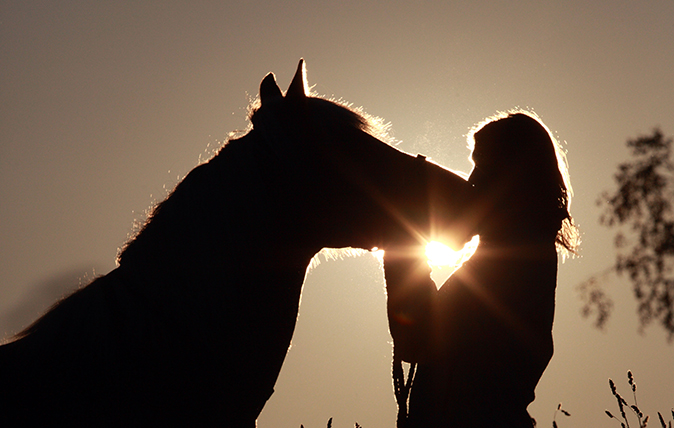
Exquisite houses, the beauty of Nature, and how to get the most from your life, straight to your inbox.
You are now subscribed
Your newsletter sign-up was successful
The bond that has bound Man to horse for time immemorial is founded on a beautiful observation by the poet and Arab breeder Ronald Duncan in The Horse. This was commissioned in 1964 and is read every year at the opening night of the Horse of the Year Show:
Where in this wide world can man find nobility without pride, Friendship without envy, or beauty without vanity? Here where grace is laced with muscle and strength by gentleness confined
It must be hard for those without an understanding of horses to comprehend how the one being that is capable of reason and another that is only capable of associating ideas can form such a deep connection. Having shared every angle of my sport with the horse, I feel that anyone who only has football boots or a tennis racquet to hug is missing out on an entire dimension of life – even if their bank balance is infinitely healthier.
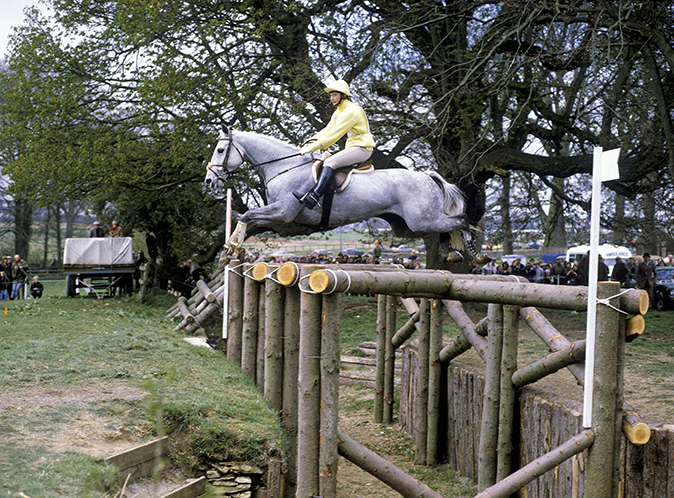
The relationship is built on the horse being able to sense what his rider wants and, provided a basic understanding has been trained in, willingly doing what is asked. Its strength is what enables man and horse to face up to the enemy in battle and to myriad challenges in competitive sport.
How does it work? I believe there is a seventh sense in the horse – if, indeed, we humans have six. Perhaps humans had this seventh sense until they learnt to talk. Perhaps talking took it away.
"A horse knows instinctively if a rider is frightened or confident, angry or pleased, short of time or tuned in. He may behave in different ways with different people because, somehow, he senses the attitude of each person he’s with."
Bucephalus, one half of an all-conquering partnership with Alexander the Great, was another mystery. No one was able to mount this little horse except Alexander, so what did he have that others did not? The historian Robin Lane Fox, who was responsible for the authenticity of the feature film, asked me if it was possible for a horse to be frightened by his own shadow – he suspected that Alexander had worked this out because he rode Bucephalus before dawn.
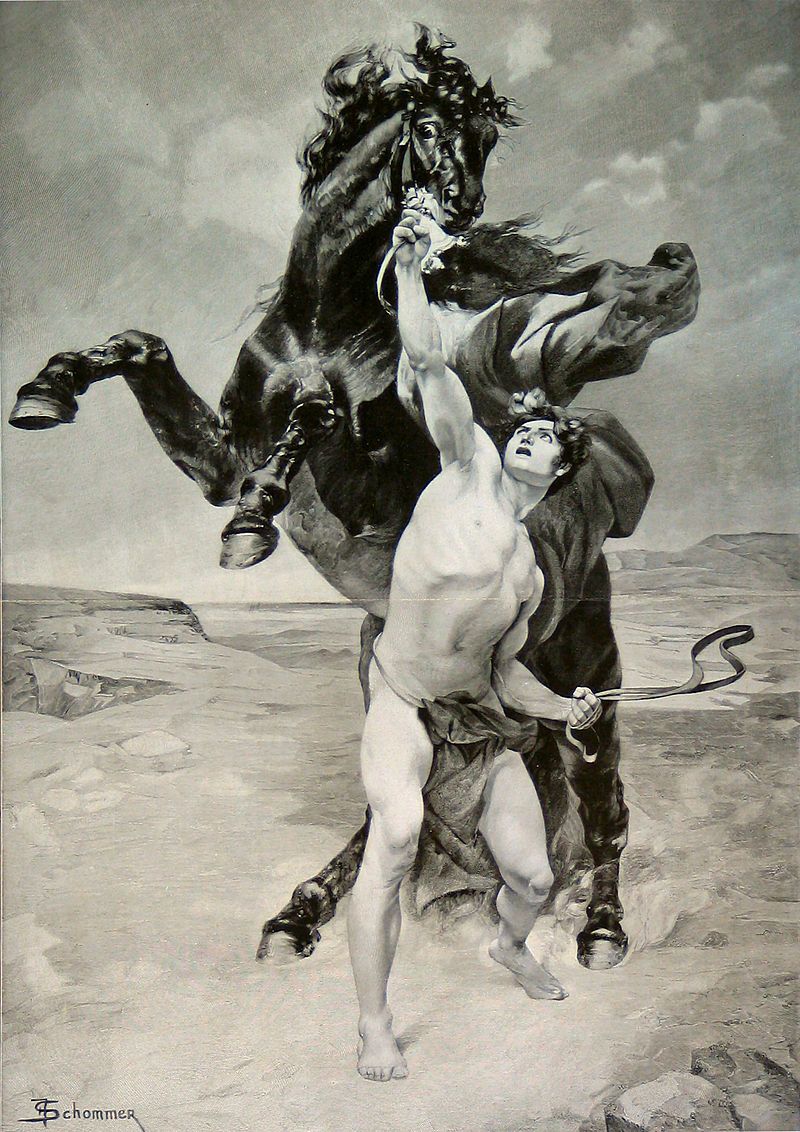
This is an age of an explosion of mental illness caused by many different elements, not least of which is the dramatic speed with which life and communication have evolved within a single generation. In this context, horses haven’t changed and their heartbeat and ancient affiliation with man become, in the madness of the everyday moment, a steadying, rooting influence to all of us involved with them. Such a connection forms a firebreak from modern life.
I’ve heard of a pony used by the charity Riding for the Disabled hearing a newcomer to the group, an autistic child, screaming at the far end of the indoor school. The pony took itself down to the child and nuzzled him, the child stopped screaming, the bond was given root and the reason why this and other similar charities can be so effective was exemplified for the umpteenth time.
Exquisite houses, the beauty of Nature, and how to get the most from your life, straight to your inbox.
Irishman Aidan O’Brien, one of the all-time great racehorse trainers, is a joy to watch saddling his horse in the pre-parade ring. After putting on the saddle, he gently brushes the horse’s body and picks out his feet, placing each hoof back on the ground – most of us just let go and expect the horse to put his own foot back down. The last thing he does is to give the horse’s lad a confidence-giving squeeze before sending the pair into the paddock and the public eye.
"I can honestly say that the reason I was lucky enough to win the Badminton Horse Trials six times on six different horses wasn’t due so much to skill and training, but to the bond that I was fortunate enough to forge between each of these wonderful horses, with their different characters and nuances."
My second winner, Wide Awake, was an especially odd and difficult one. On one occasion early in our life together, I was pretty cross with him after a bad dressage test at a competition in which I felt he’d been thoroughly unhelpful. I loaded him into my little two-horse lorry and was between him and the central bar when he quietly started to lean on me. Eventually, I had to scream for help as he was squashing the air out of me. After that, I viewed him in a different, increasingly respectful, light.
Tragically, Wide Awake dropped dead on our victory lap of honour at Badminton in 1976. The reason for his death was never discovered but, when the awful shock had abated, I felt it was just his normal way of doing things: by surprise. He was unlike any other horse I rode, always producing the unexpected. It was also him that made me doubt that horses can’t reason.
There are many routes to success with a horse and not all human protagonists are as kind as others. Regrettably, their methods do sometimes produce success, but, often, a horse that’s been trained with harshness will have the last word at a critical moment. Rearing and training a horse is a long job, with no shortcuts if you don’t want to be bitten in the backside at a later date. A horse has to want to help his rider out and it’s fair, firm, consistent training that will develop that desire better than anything else.
"In this age of instant gratification, the art of horsemanship itself is fighting to keep its head above water and have its voice be heard. So often, a horse isn’t given the time he needs to develop mentally and physically. Time is money and, as such, is a constant contradiction to the sensible education of horses."
This is an age of an explosion of mental illness caused by many elements, not least of which is the dramatic speed with which life and communication have evolved within a generation. In this context, horses have not changed and their heartbeat and ancient affiliation with man become a steadying, rooting influence to all of us involved with them. Such a connection forms a firebreak from modern life.
Everywhere, horses are helping mankind, in drugs rehabilitation units, in the Paralympic movement and in farming, industry and sport; they create both employment and Olympic stars and they can be an investment as well as a money drain. And the reason why this is the only animal in creation that can fulfill so many different roles is his willingness to please. As Duncan wrote:
He serves without servility, he has fought without enmity, There is nothing so powerful, nothing less violent; There is nothing so quick, nothing more patient.
Fortunately, the horse no longer has a vital part to play in war. The racing journalist Brough Scott wrote a book about how Warrior, his grandfather’s Thoroughbred, survived the whole of a shell-shocking, mud-suffocating First World War. He returned home to continue going hunting and to win a race at his local point-to-point on the Isle of Wight. The story, inspiration for Michael Morpurgo’s War Horse, is a wonderful ode to the courage, tenacity and ability of the horse to learn to do exactly what his handler wants.
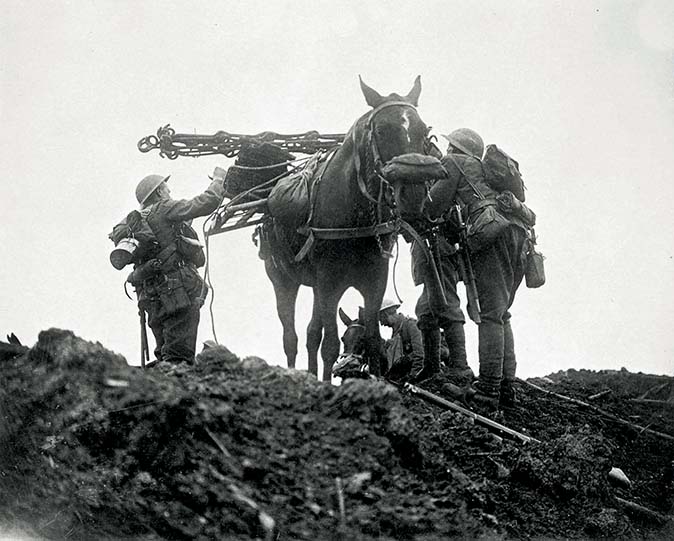
At his retirement ceremony at the Royal International Horse Show, Warrior was awaiting his turn to parade when he bolted towards the arena curtain; he could hear the bullet-like whip cracks of the Cossack display on the other side and knew he should be beside the ‘gunfire’.
It was an association of ideas through trust, despite the fact that Warrior had seen other horses blown up either side of him, and it makes me reflect on the combined pain of the soldier having to leave his injured horse on the battlefield and not being permitted to waste one bullet to alleviate the misery of his friend’s dying hours.
England’s past has been borne on his back. All our history is in his industry. We are his heirs; He is our inheritance.
No words sum up better the luxury of Man’s connection with the horse.
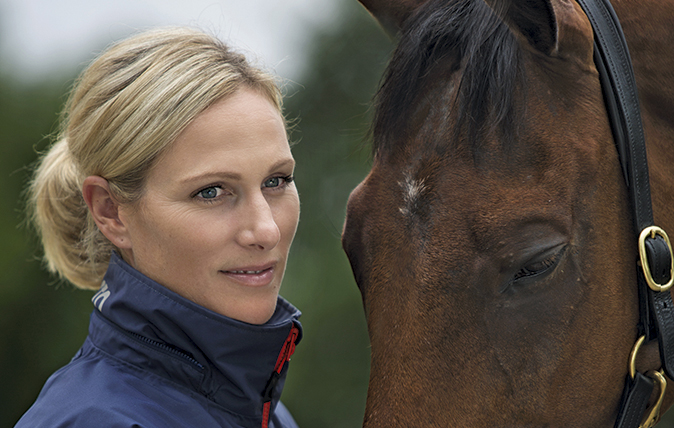
Credit: Andrew Ogilvy Photography
Zara Tindall on riding, falling off, and why High Kingdom is 'such a dude'
Zara Tindall is one of three riders to have held both world and European eventing titles simultaneously. She speaks to
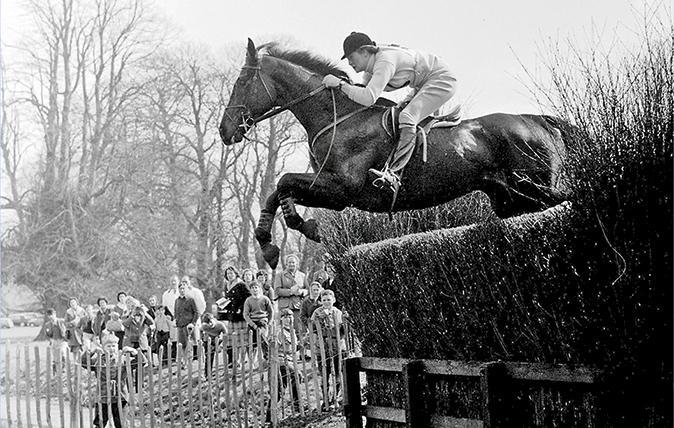
My Badminton Moment: memories of the world’s most famous horse trials
Kate Green asks figures connected with this weekend’s event for their enduring memories.
Horses & the War
Read our amazing selection of images and articles on horses during the First World War, from their role at the
Country Life is unlike any other magazine: the only glossy weekly on the newsstand and the only magazine that has been guest-edited by His Majesty The King not once, but twice. It is a celebration of modern rural life and all its diverse joys and pleasures — that was first published in Queen Victoria's Diamond Jubilee year. Our eclectic mixture of witty and informative content — from the most up-to-date property news and commentary and a coveted glimpse inside some of the UK's best houses and gardens, to gardening, the arts and interior design, written by experts in their field — still cannot be found in print or online, anywhere else.

